My name is Bertrand, I am 23 years old and I was a volunteer with SOS Chrétiens d’Orient.
Let’s start with the facts: I left on 25 October 2020 for Armenia for an initial 3-month mission. I finally stayed until the end of April 2021. In six months, I lived one of the most beautiful experiences of my life but it seems impossible to tell all that in these few lines. Some will say that it is not much for someone who has spent six months on mission, but it is not easy to put into words what I have experienced and felt.
I had so many beautiful and sometimes deeply moving encounters, unique moments and witnessed the sadness of a people, defeated in an unequal war. Families broken by an infernal machine launched by Azerbaijan, on historically Armenian lands. Armenians who had to leave their homes by force, driven out by a merciless enemy.
When I arrive, the conflict in Artsakh is almost over. The Armenian armed forces, crushed by a relentless lightning war, are no match for Azeri firepower and the soldiers are retreating under a swarm of drones breaking the Armenian defence lines. The first time I set foot in Goris, I see a city entirely focused on the war effort and many soldiers on leave, their faces betraying great youth. Most of them are between 18 and 20 years old. Younger than me and yet sent to the front where death reigns, merciless, tentacular octopus that decimates the ranks of the Armenians. I shudder when I read the black banners adorning the entrances to towns and villages, marked with the names of fallen soldiers and their ages. 18, 19, 20, 21. Soldiers who made the ultimate sacrifice for a national ideal that transcends them. The courage of a people fighting is an anomaly for our individualistic and sanitised Western societies.
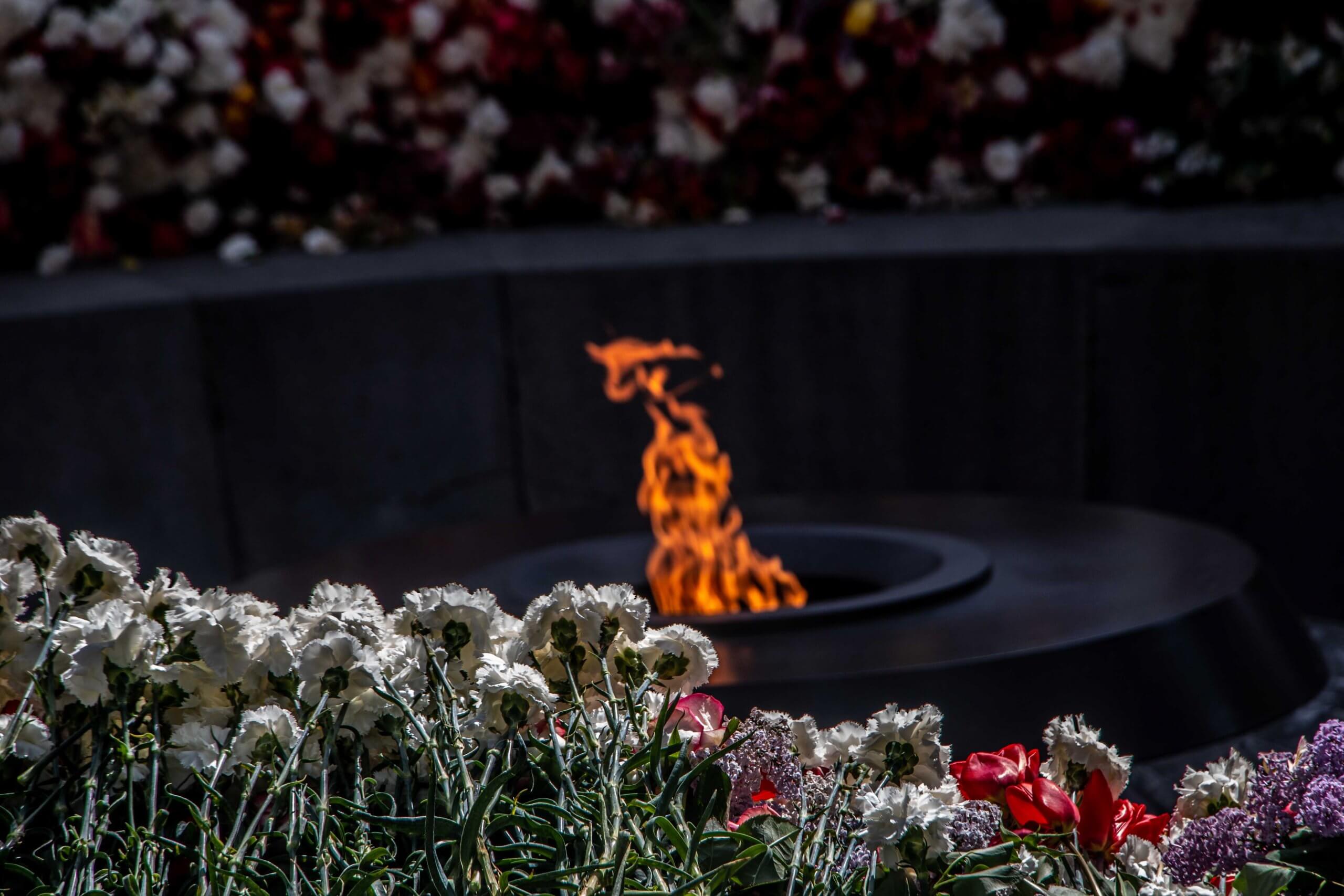
The war did not motivate my departure, since I already knew my destination before the outbreak of hostilities by Azerbaijan, but it accentuated in our minds the precariousness of the Armenian nation. Surrounded by so many enemies and so few friends, Armenians are in a constant struggle for survival. I have seen Armenians united to defend their homeland and their faith. I saw many Armenian soldiers, dressed in their warrior uniforms, placing candles in the churches. Turning their hearts to the Lord, the soldiers are aware of the civilisational battle that is taking place on the lands of Artsakh.
The conflict ends on 10 November 2020 with the signing of a tripartite ceasefire agreement that provokes the anger of the Armenian population. The streets of Yerevan are in turmoil and I am awakened by the crowd, drunk with fury that feels betrayed by its government. This resentment will not leave a part of the population that feels abandoned. With the redefinition of the borders, a real crisis of spaces is to be expected for Armenia. I will witness this crisis and SOS Chrétiens d’Orient will be at the side of the farmers to find viable solutions to the loss of grazing areas, especially in Syunik.
This ceasefire also establishes an occupation of major spiritual places for Armenians. Dadivank, a thousand-year-old monastery, falls. Before the implementation of the effective measures of this agreement, I was able to visit this Armenian spiritual lung before the Azeris took it over. This trip will be the most striking of my stay: the Armenians take the road to join the Republic of Armenia, leaving behind their lives. Some of them, unable to bear the idea of their property falling into the hands of the enemy, burn their houses and barns.
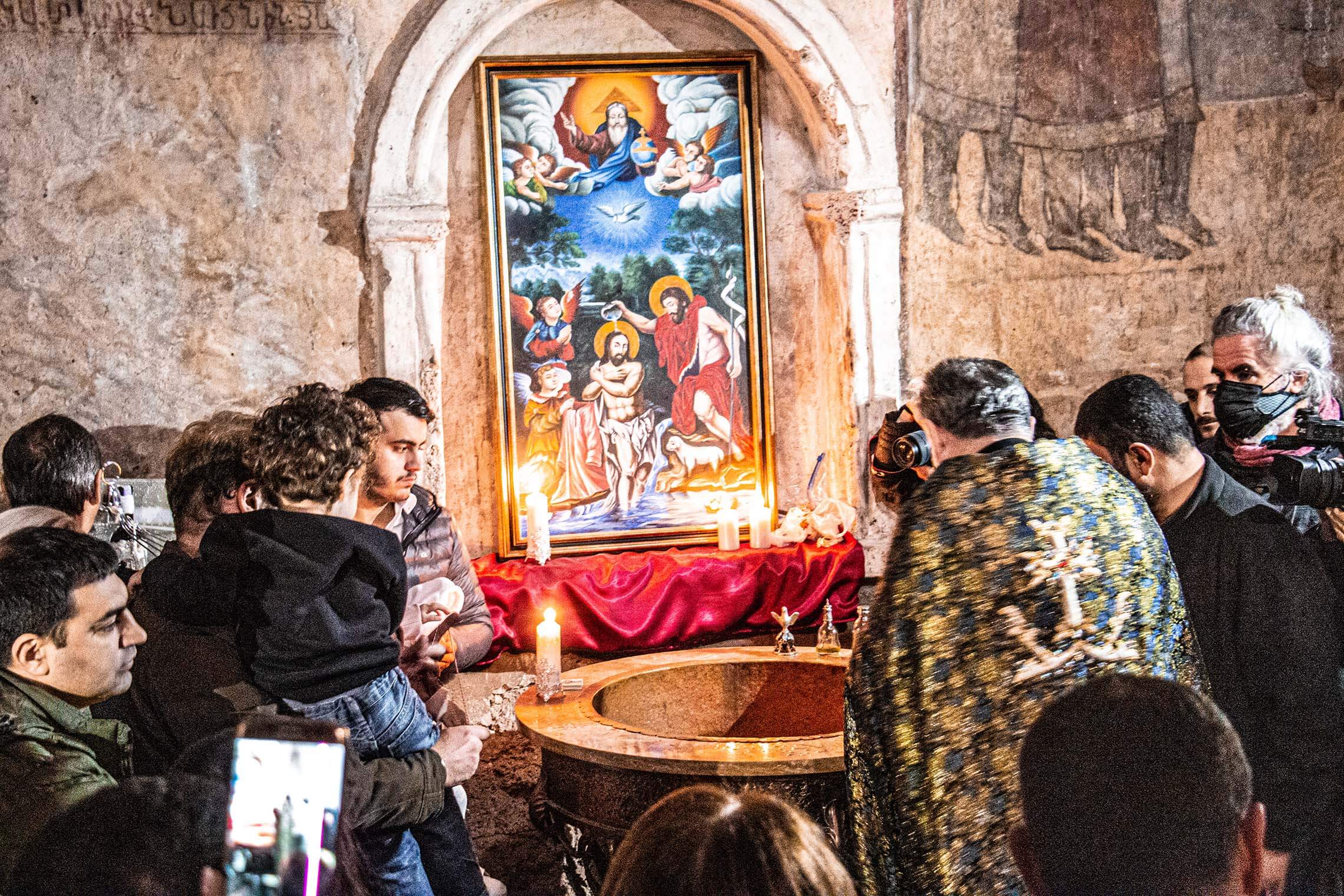
The monastery vibrates one last time with the prayers of the faithful who have come to see this high spiritual place. Proud men’s faces are marked by the tears that have flowed. Women lament while hugging each other. A woman, seeing that we are French, calls out to us to beg us to bear witness to what we see, to bear witness to the fate of the Armenians whose cry for help the world does not hear. The fear of seeing 1915 happen again is present in their minds: the European nations are deaf and blind to what is happening in Artsakh.
Shaken by this day, I am reaffirmed in my will to stay by the side of the Armenians and I decide to extend my mission. In mid-November, the volunteers of SOS Chrétiens d’Orient set up in Goris to respond directly to the needs of the displaced populations who had come to settle there during the war. I am entrusted with the many responsibilities, a great honour for me. In the first months, we mainly go to meet the people in Goris and the surrounding villages. Khoznavar, Aravus, Tegh, Verishen … which have experienced an influx of displaced people that is sometimes difficult for the local authorities to manage. I am immediately struck by the warm welcome of the families who, each time we come, set up a king’s table and serve us dishes, each more delicious than the last.
In front of some families, it is difficult for me to speak. In Goris, we meet a couple who lost two of their sons in the war. One of them was my age, 23. The other was the father of two young children. Their last son is severely mentally and physically disabled. In this situation, faced with the distress of a family crushed by the infernal war machine, words fail me to describe what I can feel. One feels powerless to help this family, which will never really rebuild itself. And there are thousands of families like this.
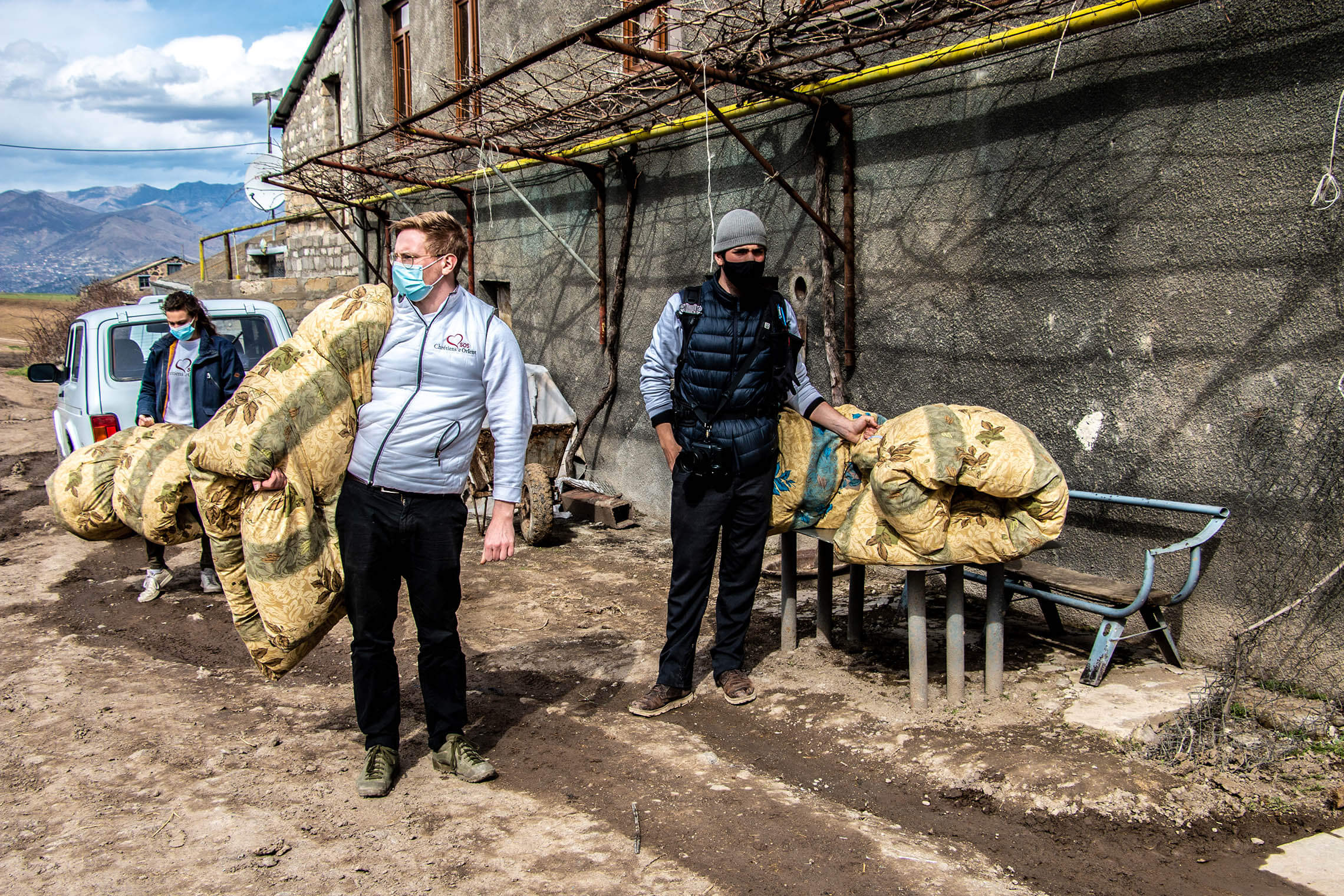
We try to meet their basic needs by providing them with basic necessities to ensure that they can spend the winter in decent conditions. We organise donations of clothes, food, hygiene products and blankets. It’s not much, but the joy the children show when we give them a toy touches my heart.
In the village of Khoznavar, a family consisting of a widow and her two daughters is living in a flat without running water or a bathroom. The five-year-old girl’s face lights up when we give her a colouring book and crayons. These are moments we cannot forget. Donations to the families also show them that they are not alone and that the French nation hears their suffering.
After the cold of winter, the sun comes out again and with it spring. Our action on the ground then takes on a new form. After the emergency aid comes the difficult reconstruction of families. So, with the support of Corentin, my head of mission, I launched economic development projects.
In Goris, the new sewing workshop allows displaced women from Artsakh to learn a new trade and to feed their families. The smiling seamstresses get down to work with enthusiasm: they learn quickly and orders are already coming in. Very symbolically, I ask them to sew me a flag of Artsakh to bring back with me to France and that it remains an imperishable souvenir of what I experienced in Armenia.
New issues are emerging. The redefinition of the borders causes a drastic reduction of the grazing areas for the herds of Armenian farmers. The latter have to sell their animals at prices well below the market price and are left with nothing to survive on. The men and women of Syunik have to find other ways to feed themselves. Together with the volunteers, I organise a donation of small livestock to 8 families so that they have a new source of income. Geese, chickens, turkeys and even piglets, these animals that do not need large spaces will help the families to survive.
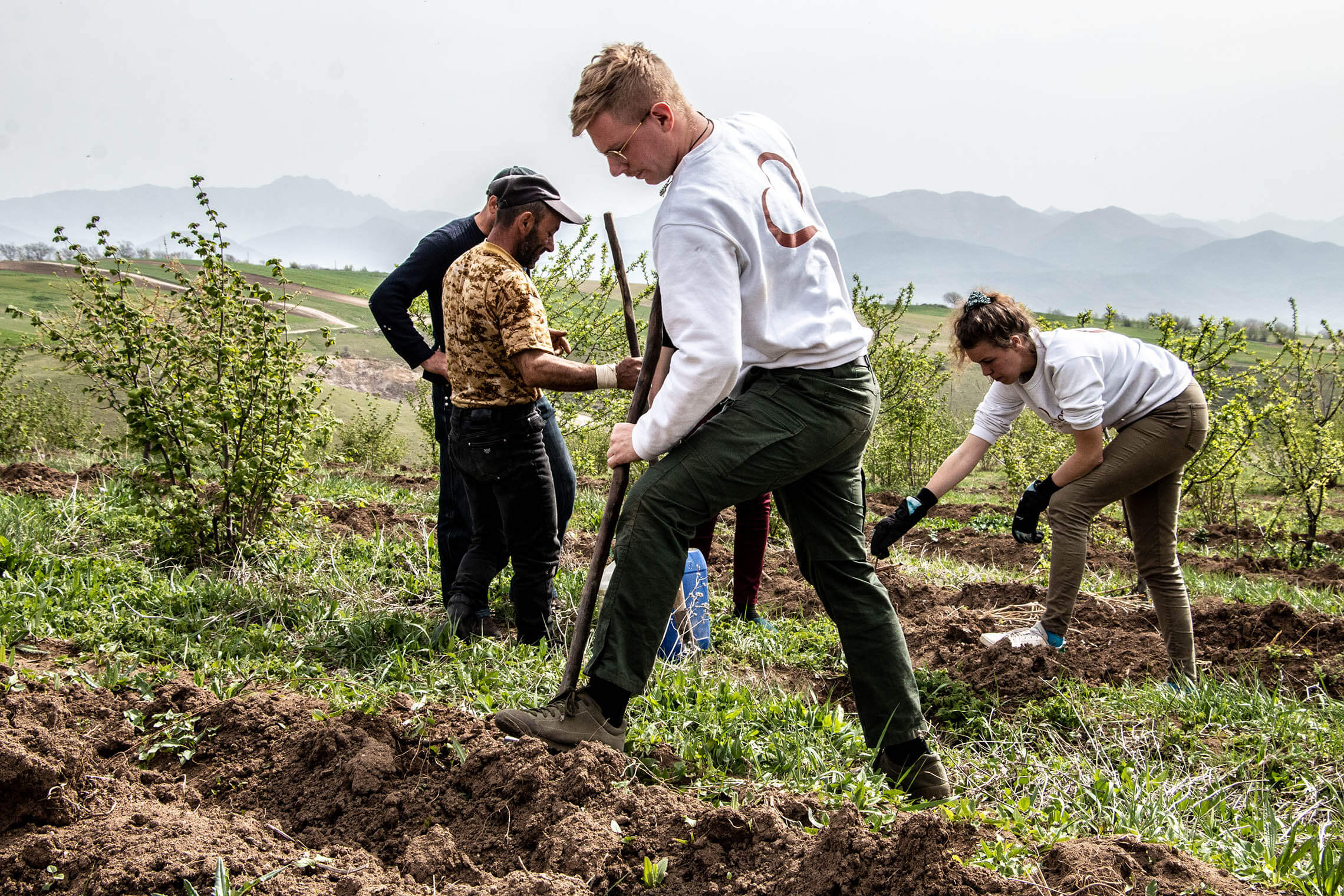
We give farmers fruit trees to revive market gardening in the region: apple trees, pear trees, cherry trees, hazelnut trees provided by the Armenian Fund of France are happily planted by the volunteers. Surrounded by majestic mountains, these trees are a symbol that renewal is possible for these families.
However, the Azeri threat is still present: I am afraid that Azerbaijan does not stop at Artsakh and already President Aliev is threatening to invade Syunik. Armenia is more than ever in danger, threatened by its neighbours who seek to eradicate Armenian culture, a thorn in the side of those with panturalistic visions.
A page of my life is turned with my return to France. I have learned so much about myself and I feel that this founding experience has made me grow. It strengthens me in the choice of what I want to be in my life as a man. SOS Chrétiens d’Orient, through its concrete action with populations in difficulty, has allowed me to discover the real meaning of commitment.
The other volunteers have also made me grow. I am thinking in particular of Rodolphe, father of 4 children, who joined us for a month, leaving his family behind to help the Armenian people; André, young father of a little Arnaud, who had the desire to commit himself to the Armenians, and so many others who left behind their well-ordered lives to take part in the SOS mission.
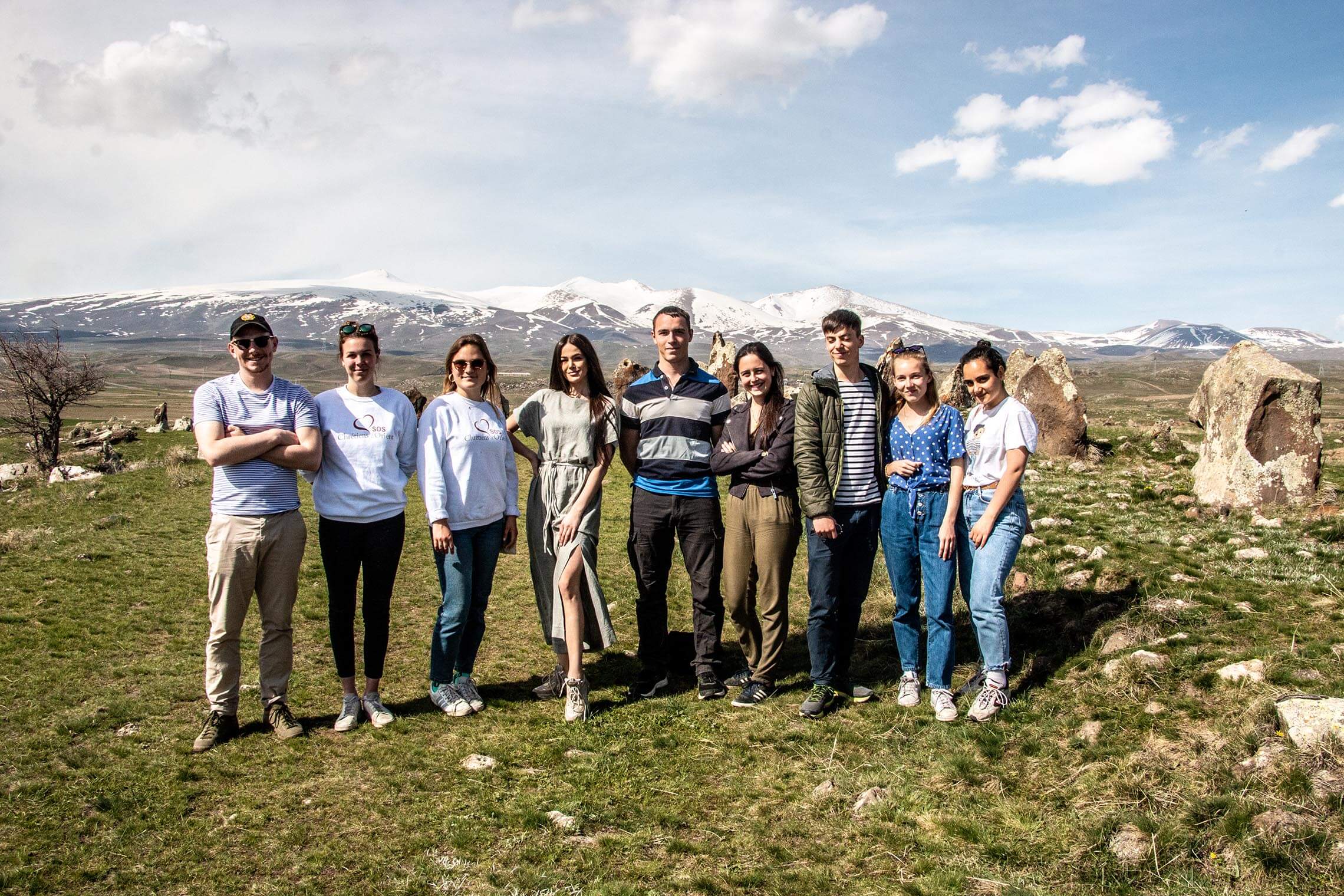
I met real adventure comrades that I would see again in France or elsewhere, and who accompanied me in my mission. I think of Grégoire, Gayané, Myriam, Armand, Alexandre, Vincent, Blandine, Violaine, Philippine, Joséphine, Déodat and so many others. I also think of those I met in Armenia, local people proud of their country who are mobilized and work alongside us: Nonna, Karmen, Aram, … I can’t conclude this testimony without mentioning Corentin, my head of mission, who works constantly for the success of this humanitarian adventure.
This is the end of my mission here, but it will really begin when I return to France. The Armenian people need their voice to be heard in the West, so that public opinion becomes aware of what they are experiencing. Our Armenian brothers are fighting for their survival every day and holding on valiantly. Let us not forget them.
Bertrand, volunteer in Armenia.
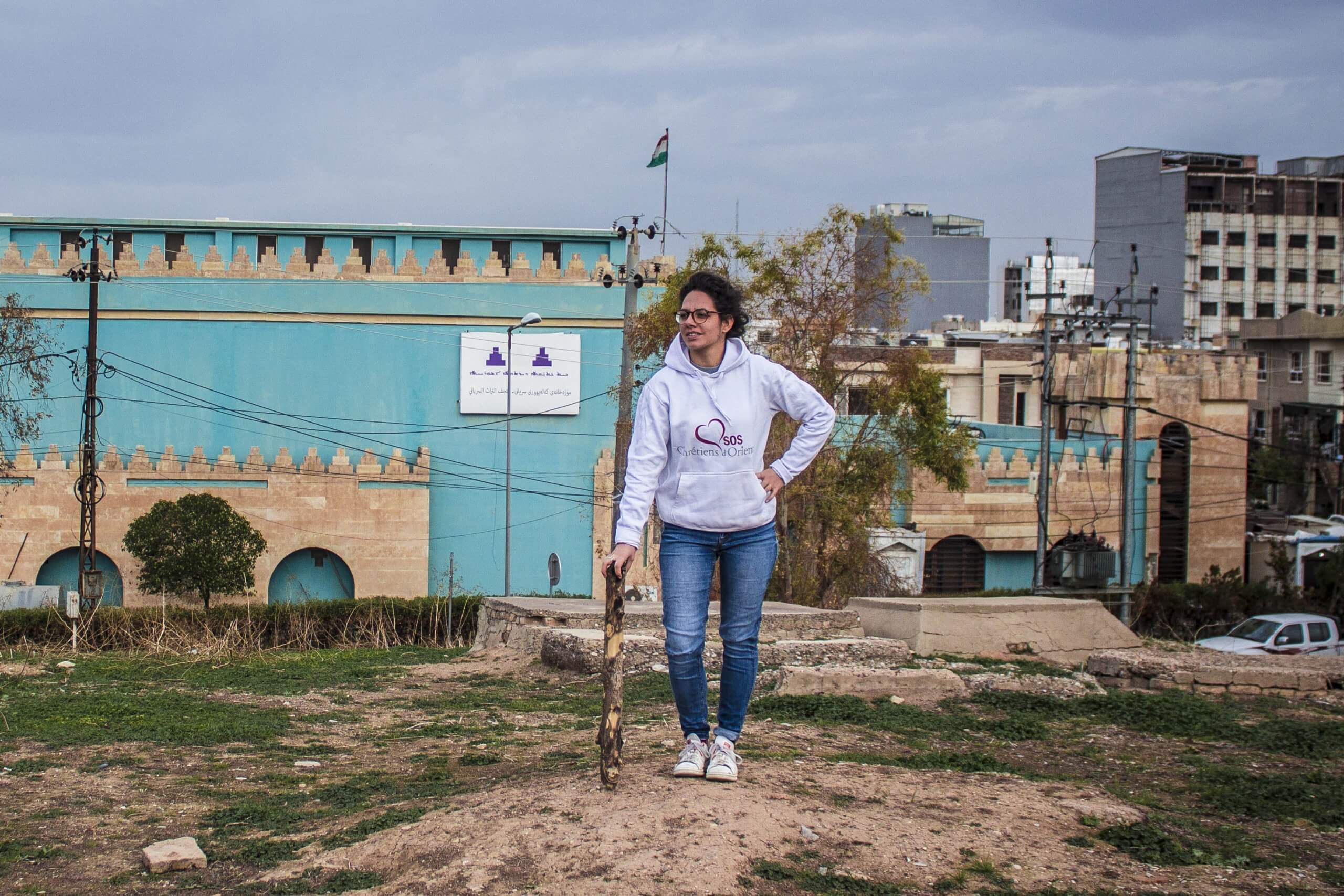
Head of volunteers